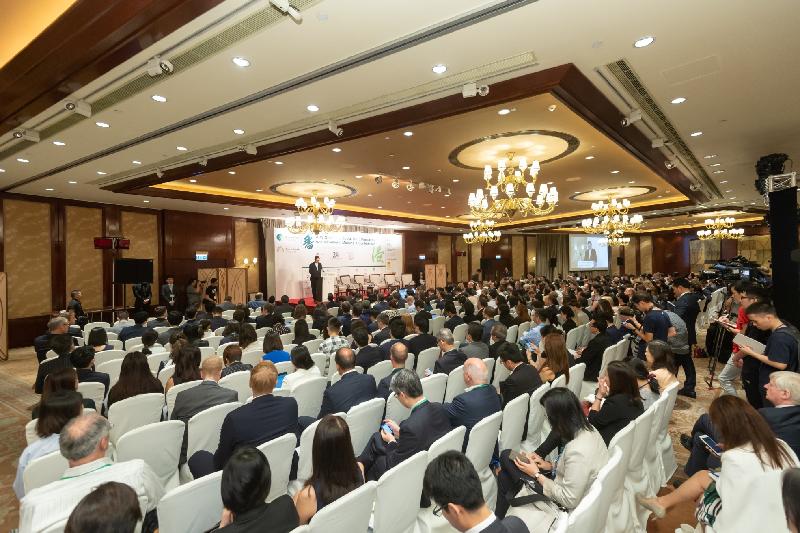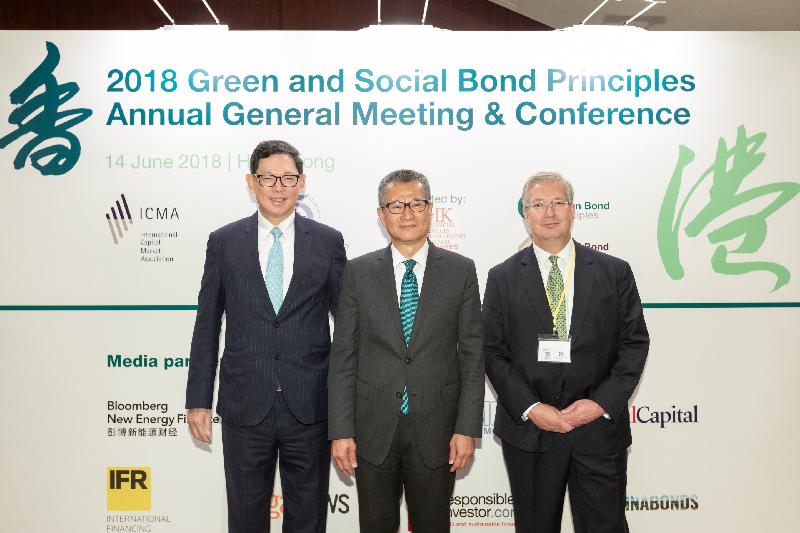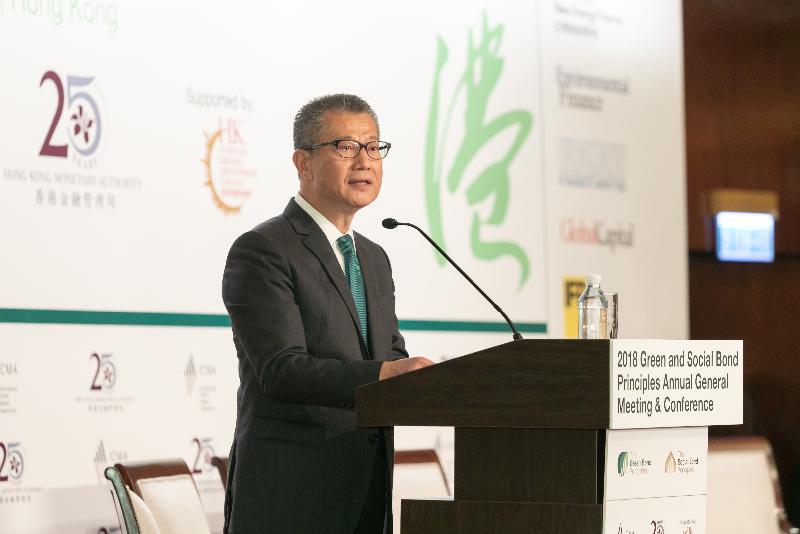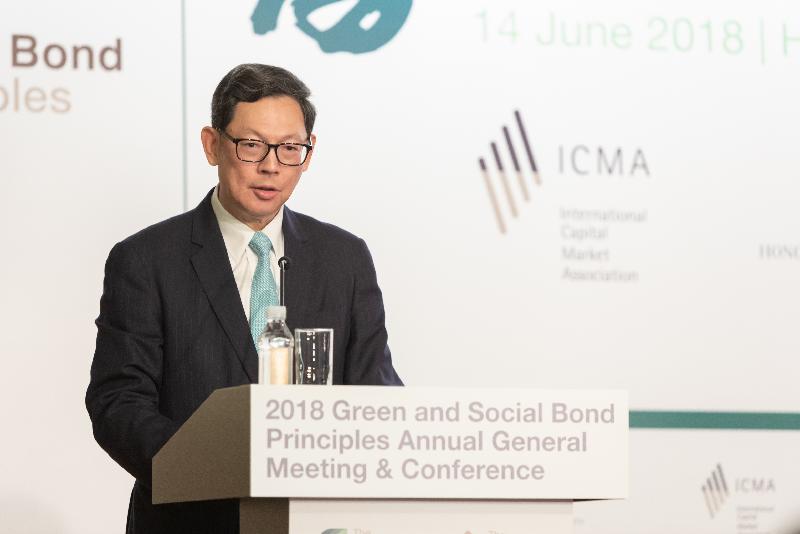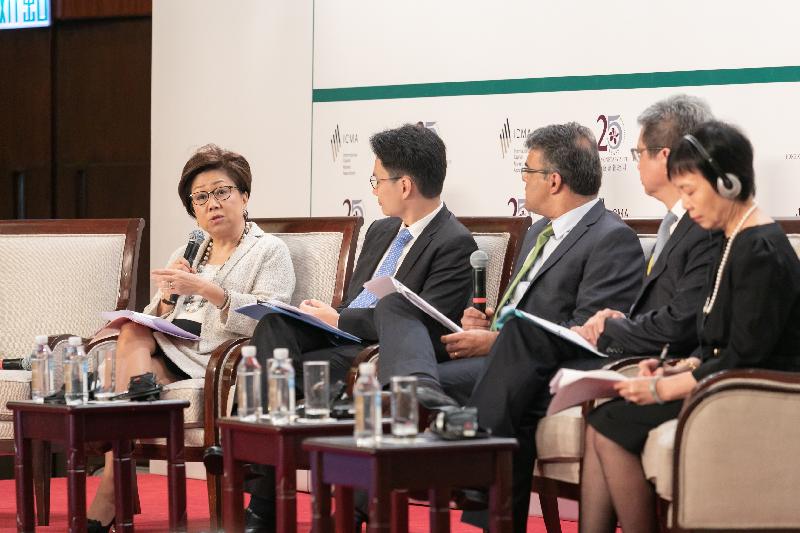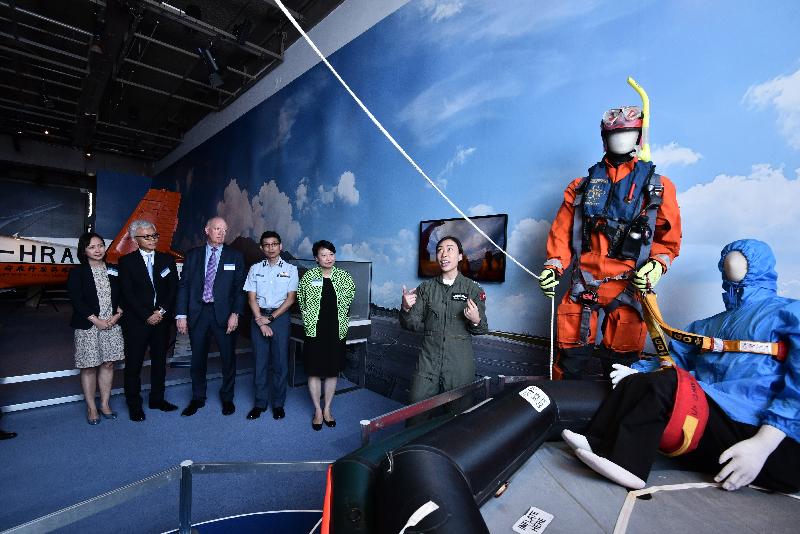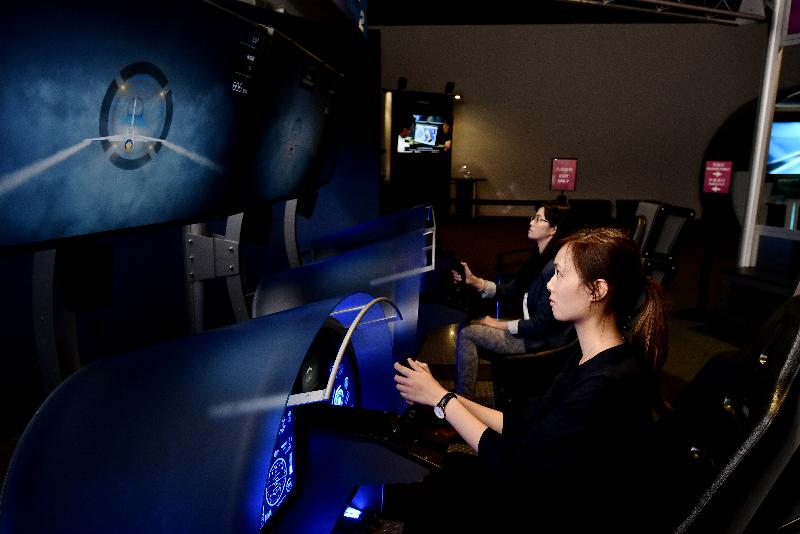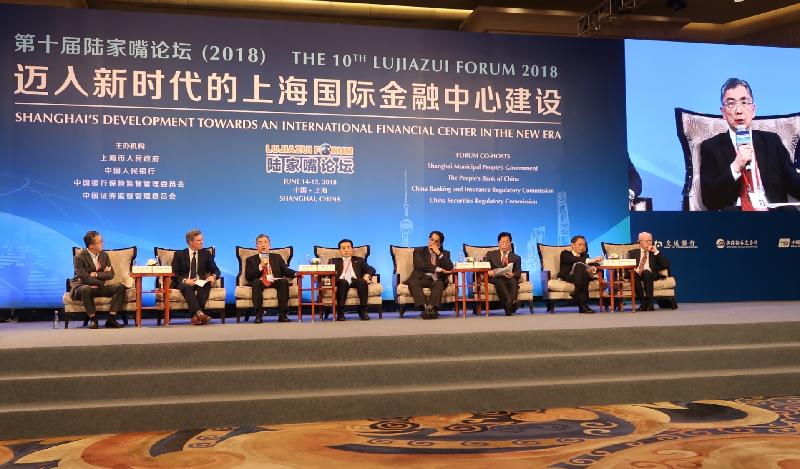ICMA and HKMA co-host 2018 Green and Social Bond Principles Annual General Meeting and Conference in Hong Kong (with photos)
The following is issued on behalf of the Hong Kong Monetary Authority:
The International Capital Market Association (ICMA) and the HKMA co-hosted the 2018 Green and Social Bond Principles Annual General Meeting (AGM) and Conference today in Hong Kong.
The Green Bond Principles (GBP) and Social Bond Principles (SBP) AGM & Conference is an established, high-profile gathering for leaders in the green bond market and increasingly for the growing social and sustainable bond markets and other asset classes in sustainable finance. The conference today brought together some 800 industry professionals from around the world, including investors, issuers, intermediaries, external reviewers and rating agencies, the official sector including policy makers and market supervisors, stock exchanges, law firms and other professional services firms, to debate advances in this market and the requirements for its future success.
This is the first time that this flagship international green finance event is being held in Asia, signifying the growing influence of Asia in the development of green bonds in particular, and sustainable finance more widely, as well as recognising Hong Kong's status and importance as an international financial centre.
The conference sessions covered developments in the global green, social and sustainability bond markets which raise capital for projects that provide environmental and social benefits. The agenda at the conference was particularly focused on the increasing maturity of these markets and the convergence towards market-based global standards. There was also a specific session on progress in the Green Bond Market of Hong Kong and mainland China.
The AGM of the GBP and SBP preceded the conference and would be followed by the release of the 2018 update of the GBP, SBP and Sustainability Bond Guidelines, alongside new publications providing guidance designed to further strengthen and interconnect the market ecosystem. In 2017, it is estimated that more than 85 per cent of issuance in the global Green Bond market was aligned with the GBP.
The ICMA's Chief Executive, Mr Martin Scheck, opening the conference said, "Holding this event today in Hong Kong is recognition both of the progress made and the future potential of the Asian market for sustainable finance. Market and official initiatives aligned with the Green Bond Principles have accelerated growth in Asian markets for green, social and sustainability bonds. The official stance in Asia has been very supportive and innovative, with mainland China showing early leadership in Green bond issuance."
The Chief Executive of the HKMA, Mr Norman Chan, said, "I believe that time has come for asset owners to take a more progressive and proactive stance in supporting green finance. Asset owners, be they pension funds or sovereign wealth funds, can make a difference in promoting long-term environmental sustainability by taking concrete steps to invest in green finance. We in the HKMA are prepared to play our part and I sincerely hope our peers will join us in owning and pursuing the goal of supporting green finance."
About the HKMA
The Hong Kong Monetary Authority (HKMA) is the government authority in Hong Kong responsible for maintaining monetary and banking stability. It was established in April 1993 by merging the Office of the Exchange Fund and the Office of the Commissioner of Banking.
The HKMA's policy objectives are:
- to maintain currency stability within the framework of the Linked Exchange Rate System;
- to promote the stability and integrity of the financial system, including the banking system;
- to help maintain Hong Kong's status as an international financial centre, including the maintenance and development of Hong Kong's financial infrastructure; and
- to manage the Exchange Fund.
For more details, please refer to www.hkma.gov.hk
About the ICMA
The International Capital Market Association (ICMA) is the self-regulatory association for the international capital market with over 530 member institutions from more than 60 countries, including banks, issuers, asset managers, infrastructure providers, law firms, rating agencies and other market participants. It performs a crucial central role in the market by providing industry-driven standards and recommendations for issuance, trading and settlement in international fixed income and related instruments. ICMA's market conventions and standards have been the pillars of the international debt market for 50 years. ICMA liaises closely with regulatory and governmental authorities, to ensure that financial regulation promotes the efficiency and cost effectiveness of the capital market. For more details, please refer to www.icmagroup.org.
The green, social and sustainability bond market aims to enable and develop the key role debt markets can play in funding projects that contribute to environmental sustainability or/and socio-economic challenges globally. The Green Bond Principles, Social Bond Principles and Sustainability Bond Guidelines (the "Principles") promote integrity in this market through guidelines that recommend transparency, disclosure and reporting. The 2018 editions of the GBP and SBP remain framed by four core components (Use of Proceeds, Process for Project Evaluation and Selection, Management of Proceeds and Reporting), as well as recommendations for the use of External Reviews. It also continues to underline the importance of the use of the recommended disclosure templates for issuers and the content of external reviews.
